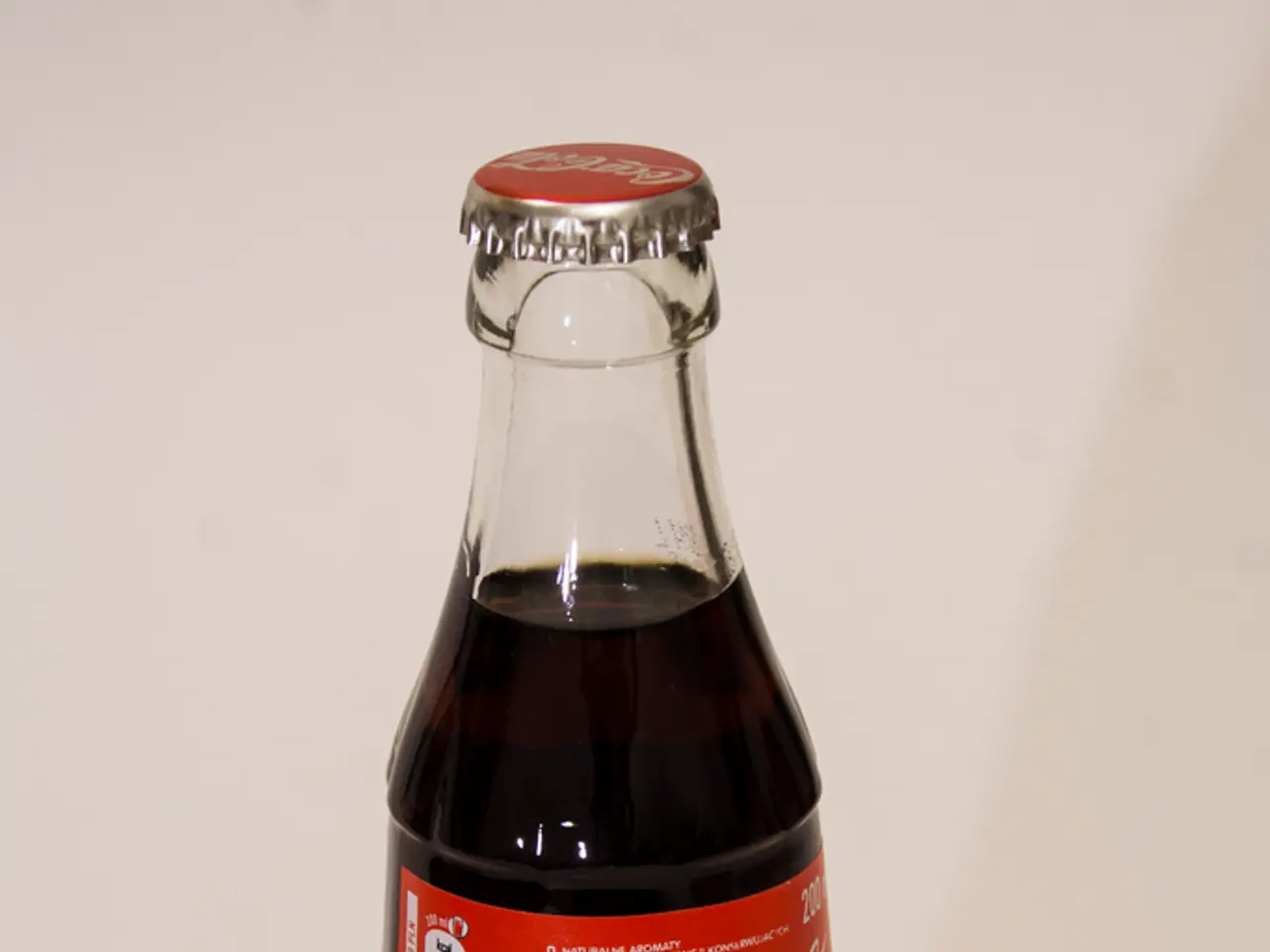Lowest-calorie beverage options with alcohol content
Discovering Low-Calorie Alcoholic Drinks: A Guide
Maintaining a healthy lifestyle doesn't necessarily mean giving up on your favourite tipple. Low-calorie alcoholic drinks are becoming increasingly popular, offering a balance between enjoying a drink and managing your calorie intake. Here's a rundown of some low-calorie options that can fit into a low-calorie, low-carb lifestyle.
A Vodka Soda is a classic choice, made with 1.5 oz of vodka and sparkling water. With around 100 calories and no sugar, it's a refreshing option for those watching their calorie count.
Tequila on the Rocks (blanco or silver) is naturally gluten-free, low in sugar, and calories. It's a great choice for those who enjoy tequila.
A Gin and Tonic with diet or slimline tonic water is another popular choice, with about 97 calories per standard serving.
Rum with sugar-free cola is another low-calorie option, with around 100 calories and no sugar.
Whisky or bourbon neat or on the rocks is a classic spirit that fits the low-calorie category, with approximately 100 calories per serving.
Light beers are also a good choice, containing roughly 100 calories per 12 oz serving. They offer a lower calorie alternative to regular beer.
Red wine is another option, with approximately 125 calories for a 5 oz serving.
In the realm of pre-mixed drinks, low-calorie canned cocktails or hard seltzers like Spa Girl Vodka Cocktails, Dulce Vida tequila-based drinks, and Biza Cocktails, typically range from 65 to 100 calories and some include added vitamins or electrolytes.
However, it's important to note that while these drinks are lower in calories and may support more mindful alcohol consumption, moderation remains crucial. Alcohol itself can affect metabolism, hydration, and liver health.
A Dry Martini, made with 0.5 oz of dry vermouth (at 55 calories) and 3 oz of gin (at 194 calories), provides only 214 calories.
Champagne, with an average 4-oz glass containing approximately 90 calories, is another low-calorie, low-carb option.
A White Wine Spritzer can be made by combining a 5-oz serving of white wine with calorie-free sparkling water, reducing its calorie count.
Rum and Coke, also known as a Cuba Libre, can be a low-calorie option, with a 1.5-oz serving of rum having 97 calories, and diet coke adding no additional calories.
On the other hand, a Mojito is not a low-calorie drink. It's typically made with white rum, lime juice, sugar, mint leaves, and club soda. To reduce its calorie count, you can replace sugar with stevia or add fresh fruit like strawberries or blueberries.
In conclusion, low-calorie alcoholic drinks can be a great way to enjoy a drink while managing your calorie intake. However, moderation is key, and it's important to remember that alcohol does impact metabolism, hydration, and liver health.
[1] Healthline. (2021). Is tequila good for weight loss? https://www.healthline.com/nutrition/is-tequila-good-for-weight-loss
[2] Healthline. (2021). Is vodka soda healthy? https://www.healthline.com/nutrition/is-vodka-soda-healthy
[3] Healthline. (2021). Is gin and tonic healthy? https://www.healthline.com/nutrition/is-gin-and-tonic-healthy
[4] Healthline. (2021). Is rum and coke healthy? https://www.healthline.com/nutrition/is-rum-and-coke-healthy
[5] Healthline. (2021). Is beer healthy? https://www.healthline.com/nutrition/is-beer-healthy
- Incorporating low-calorie alcoholic drinks into health-and-wellness and fitness-and-exercise routines can provide a good option for maintaining a balanced lifestyle, as seen with choices like Vodka Soda, Tequila on the Rocks, Gin and Tonic, Rum with sugar-free cola, Whisky or bourbon, light beers, and red wine.
- Science has shown that light beers and spirits like vodka, tequila, gin, rum, and whisky can fit into a weight-management plan due to their lower calorie content.
- For those seeking low-calorie options in the realm of pre-mixed drinks, low-calorie canned cocktails or hard seltzers can be a suitable choice, providing between 65 to 100 calories per serving, which is suitable for health-and-wellness and nutrition goals.




